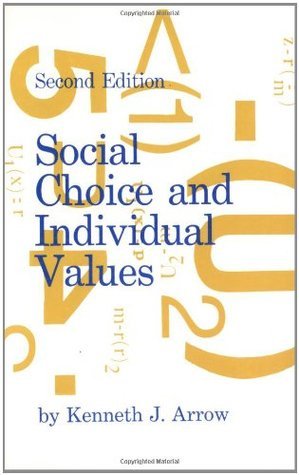What do you think?
Rate this book


144 pages, Paperback
First published January 1, 1951
Tis in vain to talk of adding quantities which after the addition will continue distinct as they were before, one man’s happiness will never be another man’s happiness: a gain to one man is no gain to another: you might as well pretend to add twenty apples to twenty pears, which after you had done that could not be forty of any one thing but twenty of each just as there was before.
If empirically meaningful interpersonal comparisons have to be based on indifference maps, as we have argued, then the Independence of Irrelevant Alternatives must be violated. The information which enables us to assert that individual A prefers x to y more strongly than B prefers y to x must be based on comparisons by A and B of x and y not only to each other but also to other alternatives.